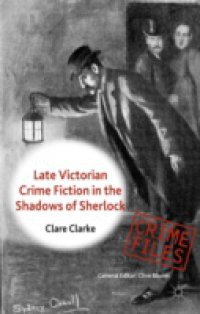The 1880s and 1890s were the years in which detective fiction firmly established itself as a genre and sealed its popularity with the reading public. Late-Victorian Crime Fiction in the Shadows of Sherlock, 1885 - 1900 investigates representations of detectives and criminals in both canonical and forgotten crime fiction at this key juncture, challenging studies which have given undue prominence to a handful of key figures. This study offers an alternative, and much fuller, account of late-Victorian detective fiction, concentrating particularly on the stories which illustrate the nascent genre's often overlooked capacity for narrative and moral complexity. It examines a selection of stories where detectives are criminals and murderers, where criminals are heroes, or where crimes go unsolved. Arthur Conan Doyle's canonical Sherlock Holmes stories and Robert Louis Stevenson's novels are considered alongside works by neglected authors Fergus Hume, Israel Zangwill, Arthur Morrison, and Guy Boothby. These fascinating 'Shadows of Sherlock' showcase the often wholly overlooked formal and moral diversity of late-Victorian crime writing, forcing us to rethink our preconceptions about what the nineteenth-century detective genre is and does.

